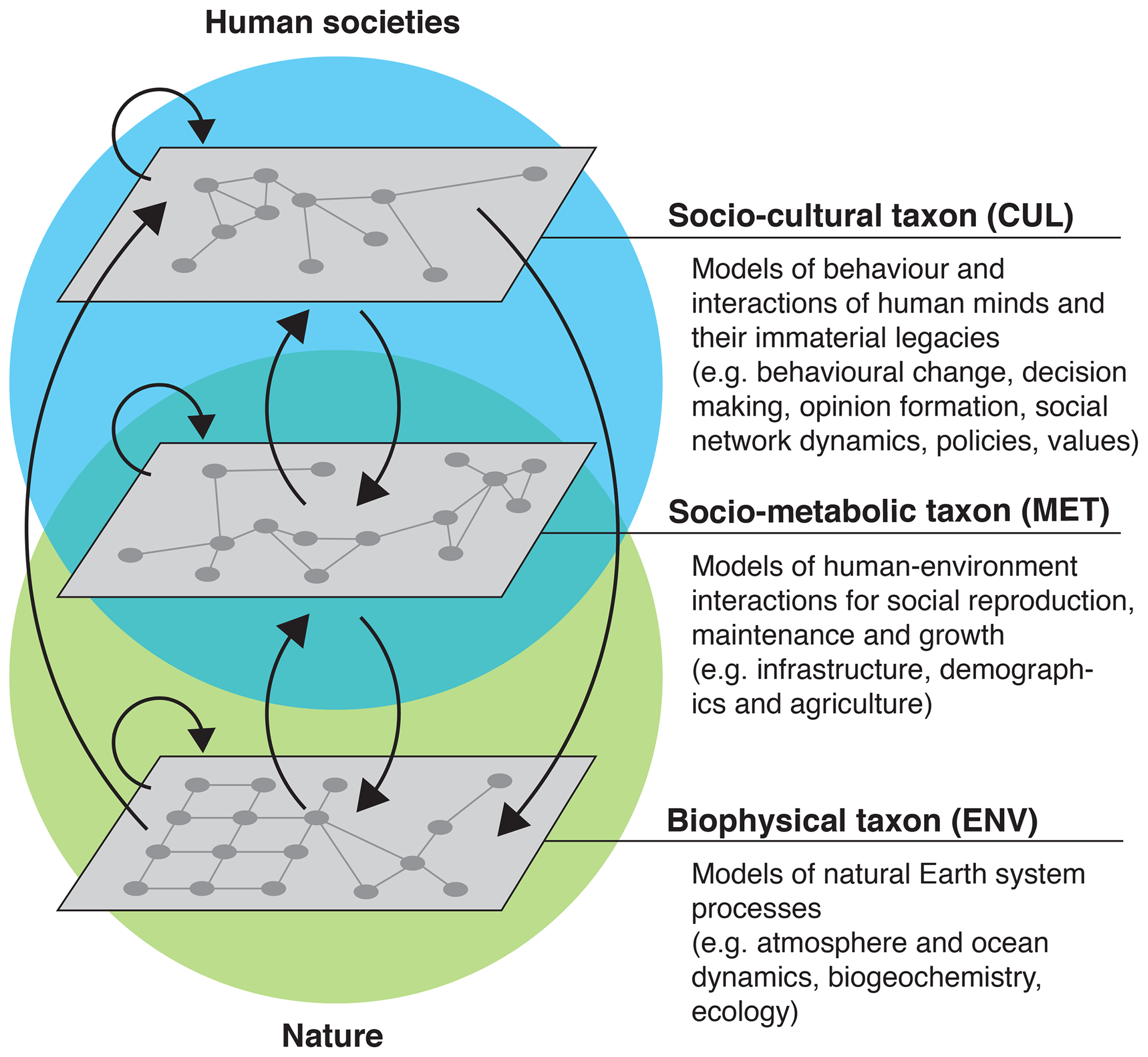#earthsystem #modelsIn the Anthropocene, the social dynamics of human societies have become critical to understanding planetary-scale Earth system dynamics. The conceptual foundations of Earth system modelling have externalised social processes in ways that now hinder progress in understanding Earth resilience and informing governance of global environmental change. New approaches to global modelling of the human World are needed to address these challenges. The current modelling landscape is highly diverse and heterogeneous, ranging from purely biophysical Earth system models, to hybrid macro-economic integrated assessments models, to a plethora of models of socio-cultural dynamics. World–Earth models capable of simulating complex and entangled human–Earth system processes of the Anthropocene are currently not available. They will need to draw on and selectively integrate elements from the diverse range of fields and approaches; thus, future World–Earth modellers require a structured approach to identify, classify, select, combine and critique model components from multiple modelling traditions. Here, we develop taxonomies for ordering the multitude of societal and biophysical subsystems and their interactions. We suggest three taxa for modelled subsystems: (i) biophysical, where dynamics is usually represented by “natural laws” of physics, chemistry or ecology (i.e. the usual components of Earth system models); (ii) socio-cultural, dominated by processes of human behaviour, decision-making and collective social dynamics (e.g. politics, institutions, social networks and even science itself); and (iii) socio-metabolic, dealing with the material interactions of social and biophysical subsystems (e.g. human bodies, natural resources and agriculture). We show how higher-order taxonomies can be derived for classifying and describing the interactions between two or more subsystems. This then allows us to highlight the kinds of social–ecological feedback loops where new modelling efforts need to be directed. As an example, we apply the taxonomy to a stylised World–Earth system model that endogenises the socially transmitted choice of discount rates in a greenhouse gas emissions game to illustrate the effects of social–ecological feedback loops that are usually not considered in current modelling efforts. The proposed taxonomy can contribute to guiding the design and operational development of more comprehensive World–Earth models for understanding Earth resilience and charting sustainability transitions within planetary boundaries and other future trajectories in the Anthropocene.
Paper: Taxonomies for structuring models for World-Earth system analysis of the Anthropocene — Potsdam Institute for Climate Impact Researchhttps://www.pik-potsdam.de/en/institute/departments/activities/copan/news/paper-taxonomies-for-structuring-models-for-world-earth-system-analysis-of-the-anthropocene